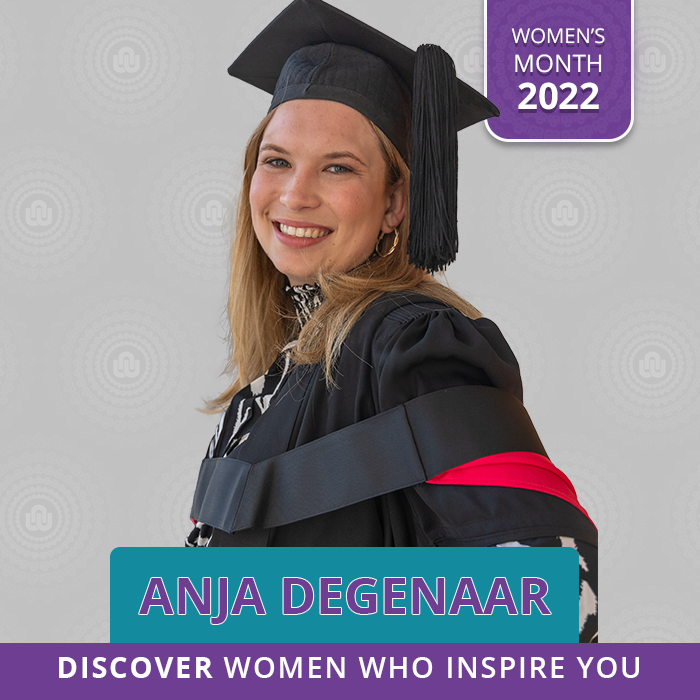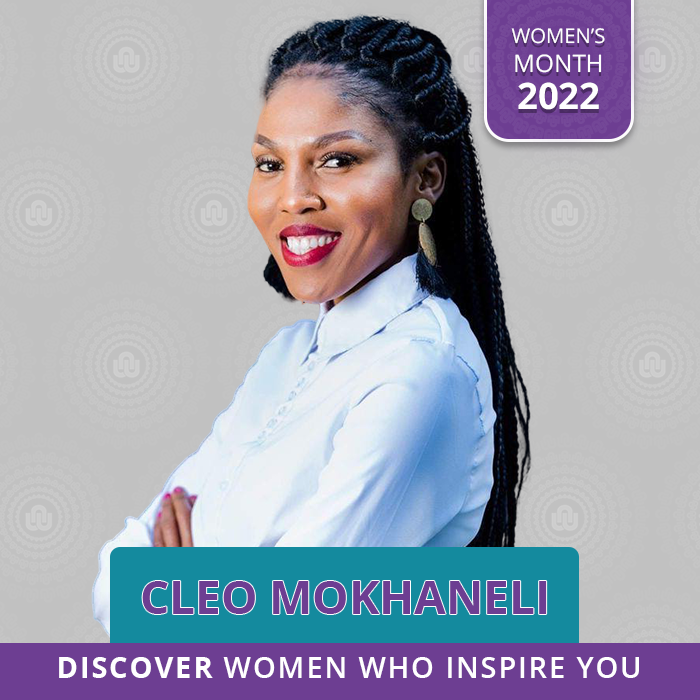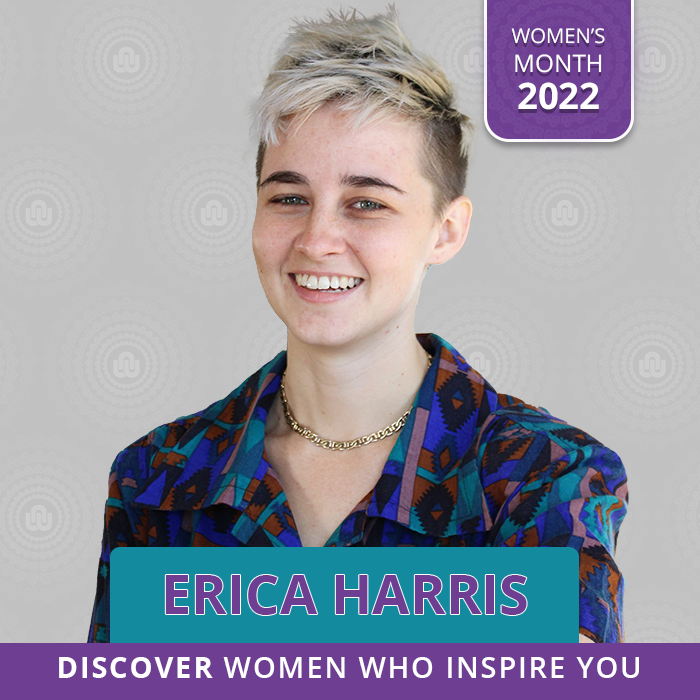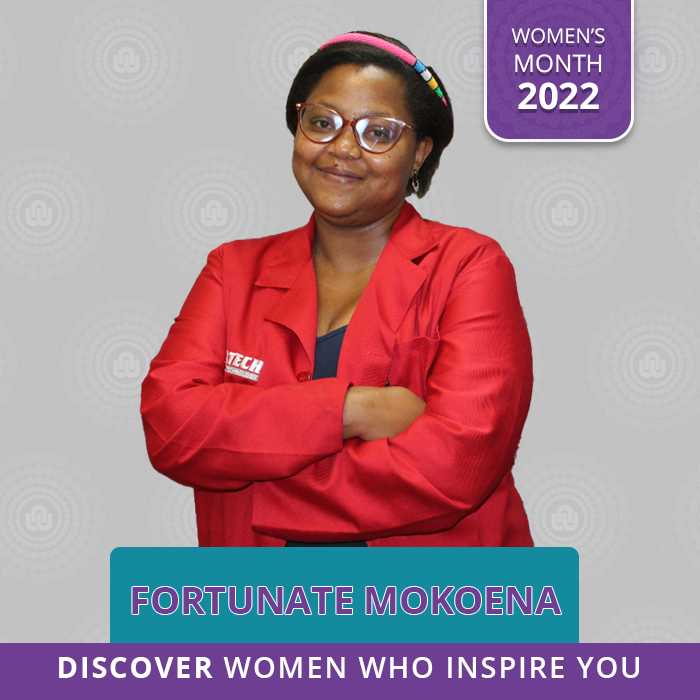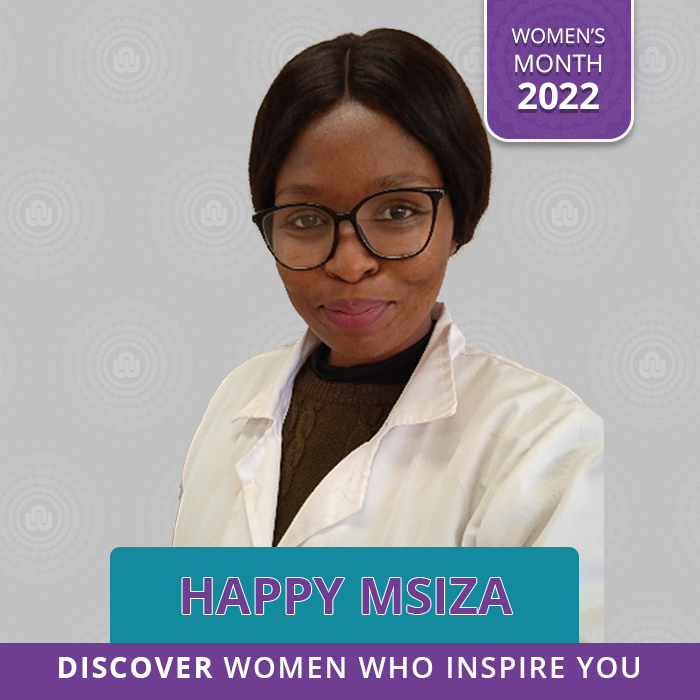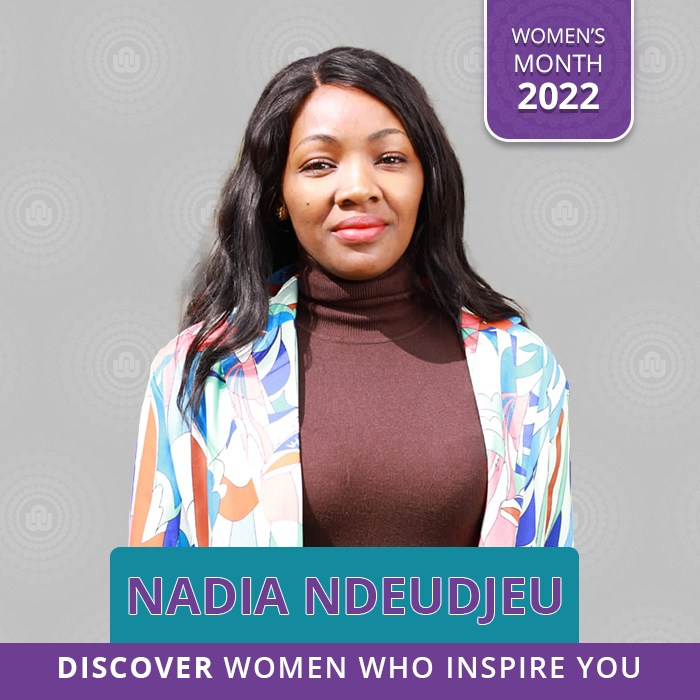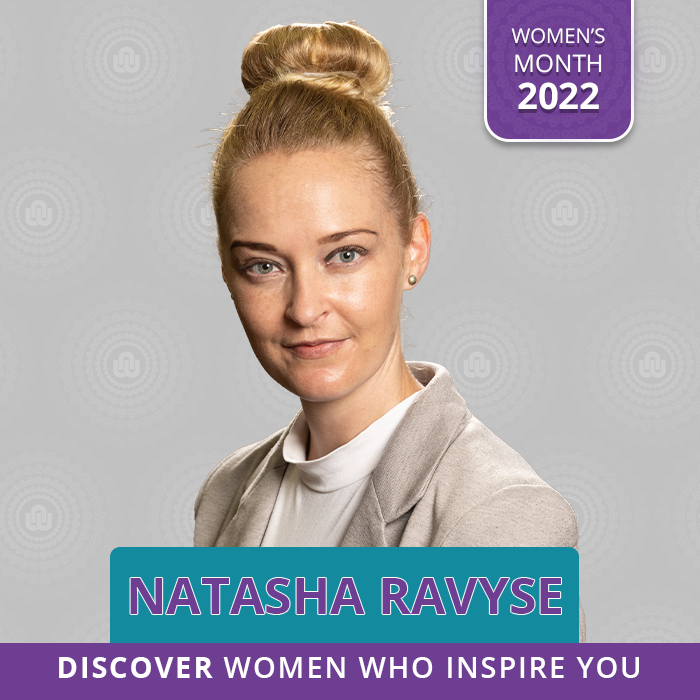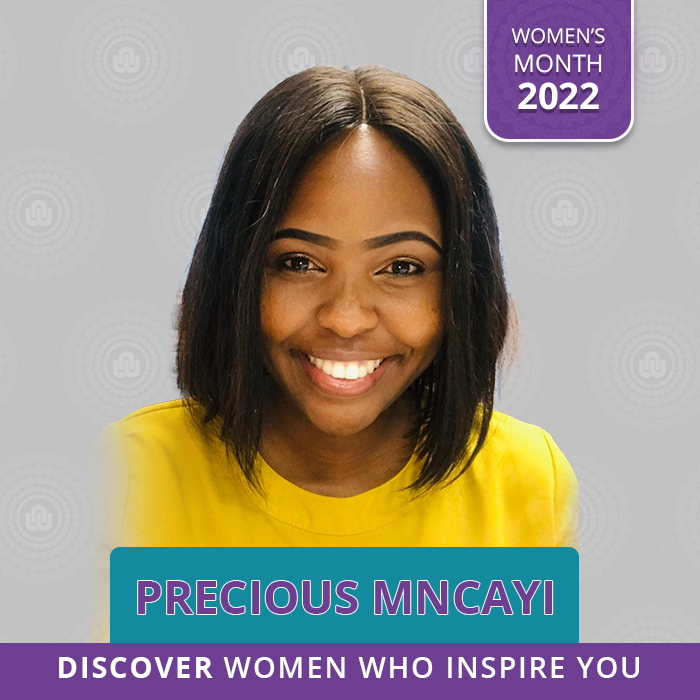
For this year’s Women’s Month, we look at NWU women who are inspiring. We highlight and celebrate remarkable women who respond to real-world issues with research. These are NWU women who have a passion for acquiring knowledge, who overcome adversity, and who inspire the next generation to discover how much there really is to them.
Read more
“Be prepared to work hard, be open-minded, and know that your research can make a difference in someone’s life” says Anja Degenaar, a PhD student in Physiology.
Anja has always been fascinated by how the human body functions and how each part is interconnected with and dependent on others, such as the heart and kidneys. Her Ph.D. is focused on learning more about the early detection of heart and renal problems, which can assist to enhance the lives of young adults. This realisation came after she completed her Honours degree.
“I realized there is so much more to discover about detecting heart and kidney diseases at an early stage, which can help to improve the lives of young adults.”
She names her mother, NWU lecturer Doctor Anette Degenaar, as one of her inspirations who taught her perseverance and to always follow her dreams.
“I believe in the following motto: ‘If it was easy, everybody would do it.’ Hard work and consistency always pay off, although it does not come easily.”
Read more
Doctor Cleo Mokhaneli, senior lecturer and affiliated researcher with the School of Physiology, Nutrition, and Consumer Sciences and HART, fell in love with her work on a visit to Hamburg, Germany!
“During my visit to Hamburg, I fell in love with my work. When I learned and realised the kind of impact my research could bring in the field of cardiovascular diseases. The possible intervention strategy that this research could bring and aid to reduce and prevent the burden of cardiovascular diseases in South Africa.” says Doctor Cleo.
She visited Hamburg after she received the DAAD-NRF In-Country Scholarship for her PhD and applied for a short-term research visit to receive training and obtain assistance with the analysis. “There was an interesting poster presentation summarising my research in the corridor just opposite my door. From time to time, I will sit there and look at it and that helped me to understand my research better. At that moment I knew that I wanted to continue with this research,” she explains why this visit has such a profound impact on her.
Her research will help to identify intervention strategies to reduce and prevent the burden of hypertension and cardiovascular diseases in South Africa. It will also help identify the best strategies for ensuring the successful integration of evidence-based interventions within clinical and public health, closing the gap between research, policymaking, and practice in real-world and community settings.
One of her challenges is balancing work and family but knowing that she can be the help that the next generation needs to fulfil their dreams of becoming renowned scientists, keeps her going.
Read more
“As a queer writer, I’ve always been very interested in queer media representation, especially in mainstream films,” says Erica Harris, a PhD candidate and winner of the 3-minute thesis competition held by the Faculty of Humanities Social Transformation Research Focus Area. Her research investigates how queer and cis heterosexual moviegoers interpret queer coding in mainstream productions.
Her interest in her research topic started early: “When I was a young girl, I watched a movie in which some of the characters were presented as ‘very close friends’. However, something about the ways they were characterised suggested (at least to me) that they may be interpreted as more than friends, but also that such an interpretation should remain unspoken for some reason. This viewing experience awakened my fascination and complicated feelings about how queer people are represented within mainstream movies.”
Her research attempts to draw attention to the under-researched communication phenomena of queer coding, which can affect, and partially produce media consumers’ conceptions of reality.
“I think, in general, women are more likely to question their own abilities or to suffer from imposter syndrome than men,” says Erica about the challenges she faces as a female researcher. “To some degree, it’s still very much a man’s world, and as a woman, you have to remind yourself that you do belong.”
Read more
Fortunate Mokoena’s passion for her research comes through in every word she speaks. Doctor Fortunate was awarded the Grand Challenges Africa drug discovery grant for her study “Identification of Novel Inhibitors against Malarial Hsp90” earlier this year.
She knew she wanted to take her research all the way when one of her honour’s lecturers complimented her. “I suppose the statement was validation and great advice. She said I possessed all the hallmarks of a future great scientist. She commended, even then, my scientific writing. I found that my curiosity (the main driver of innovation) increased the more I researched- understanding minute details about molecular interaction and mechanisms is fascinating. It has significantly helped to have been mentored by some of the most amazing women along the journey.”
Her study focuses on finding new medical substances that can be examined for clinical advancement on a protein that is thought to play a role in the spread of malaria. “Malaria killed 627 000 people in 2021; 90% of these deaths occurred in sub-Saharan Africa. My research is looking to identify new compounds that can be tested on a malarial drug target – a protein involved in malaria’s disease manifestation – for clinical progression. We use various interdisciplinary strategies to answer key research questions. On a broader scale, the success of my project would mean new life-saving medicines against a harmful disease, possibly at a reasonable cost compared to the current pricing. The immediate impact would be contributing to the knowledge economy by generating publications and patents – developing next-generation scientists with rare skills in an important aspect.”
Read more
“I think the inspiration to become an environmental lawyer was a natural happening, my first actual (underground) visit to a gold mine made me realise that I need to actively do something to secure ecologically sustainable development,” says Germarie Viljoen, a PhD student who is heading a research project entitled “Environmental Change” within the NWU’s Faculty of Law.
Her research mainly deals with the impact of the National Water Act 36 of 1998 on the water sector and her research outputs are currently being used in a series of court cases related to the legal nature of water use rights under the National Water Act. The contentious issue remains whether a landowner that has irrigation rights, may sell such to the owner of a neighbouring property, for example.
Germarie is inspired by any woman that has the passion and ability to inspire and make a difference. “Whether it is in the little things she does in her everyday life or the grand gestures in the public eye. The most recent motivation came from a statement made by one of my colleagues and mentors at the Law Faculty (Prof Willemien du Plessis). During a closing session at this year's IUCN Academy for Environmental Law colloquium, many of the attendees conveyed their scepticisms as to the impact of environmental law on the natural environment. Prof Willemien reminded us how far we have come. There were very few international documents and national laws regulating human activities in the environment in the 1960s and 1970s. And we need to reflect on the exponential growth from the 1990s onwards. Do we get it right? Not always but let us focus on the growth and gains!”
Read more
“Being in a male-dominated industry with very few female researchers like me, made me realise that I always had to prove that I am good enough and that I know my field very well. Proving myself included mostly my research publications, my co-supervision skills, and presentations skills of my work,” says Happy Msiza, a PhD student in Animal Science specialising in planted pastures, about the challenges she faces.
Happy’s research focuses on the use of vetch legumes as an alternative protein feed supplement for small stock animals (e.g., goats and sheep) for mostly winter and drier months of the year in semi-arid areas. Inadequate feed supply is a major hurdle in the sub-Saharan region which has often had negative implications for animal production. She began to recognize the special need for pasture science in her final year as an undergraduate student and grew increasingly interested in planted pastures. This meant establishing pastures to improve animal nutrition, particularly for farmers who rely heavily on pastures as it is the main source of readily available feed for their livestock.
She believes “trying” is the secret to her success. “Being a person who strongly believes in trying, knowing that whatever the outcome, positive or negative, the big thing is that I tried. My father usually told me that it is better to try and fail than to fail and try.”
Read more
Nadia Ndeudjeu, a PhD candidate in Marketing Management, is a consistent scholar. “I am passionate about new things. Growing up, I loved asking how things worked! Up to the point that one day I had to open our TV because I was trying to figure out how it would work if all those people appearing on the screen were inside. As I grew older, my curiosity only grew, and I dove into the world of marketing.”
Marketing, she believes, enables businesses to discover not just what their customers desire but also how well their company connects with and reaches them. Business owners are shifting from offline to online operations because of social media, and it is the objective of all marketers to determine which technique will make them more competitive.
Perseverance and working hard are the key elements in her success. “I was incredibly fortunate to get inspired during my very first research experience and have continued to hone my research skills. My mother didn’t go to school, but she knew that the best legacy she could leave us with is a full head through education. She is a hard worker who never gives up and our success as a child was to bring her good results.”
Read more
Doctor Natasha Ravyse’s research career started in 2012 when- she completed her honours degree in literature and published an article concerned with the immersive and repulsive effects in A Clockwork Orange.
“I have always been drawn to languages and it started in my undergraduate years when I had English as a major. I then realised that I wanted to continue my studies and was accepted for a BA Honours in English, which really is where it all started. As part of my mini dissertation (in Literature), I explored the effect that a fictional sub-cultural language could have on a reader in terms of the oscillation between immersion and repulsion (in A Clockwork Orange),” she shares her journey.
“I was fascinated by the idea of so-called made-up languages and started thinking more and more about what such languages mean to actual speakers in real life. It was just curiosity and the more I tried to find some research on it, the more I realised that there was not much written about the people who speak languages that are not recognised by mainstream society.”
Natasha’s focus on sub-cultural linguistics remains a fairly understudied subject. She believes it’s because people have not really explored all the different ways in which they could investigate this phenomenon.
“When we start to understand how to research sub-cultural languages, then we can start moving towards uncovering more and more. This is what I attempted to achieve in my PhD; methods of investigating sub-cultural languages and using my findings to rethink existing theories. I do, however, like to think of it in more simple terms where I try to find answers to my own questions and hope that other researchers ask those same questions (or maybe find my answers interesting), and then we work on answering them together. That, for me, would be the pinnacle.”
Read more
Doctor Precious Mncayi’s passion for research was inspired by her own journey. “I was inspired when I was an unemployed graduate back in 2014. I did not understand how or why that was the case, so I decided to enrol for my master's. I made it my mission to do impactful research that will help in shedding light on the association between education and employment, especially among young people.”
There more she read and wrote on graduate labour market dynamics, there more she realised how serious the issue is. South Africa has one of the highest youth unemployment rates at more than 50 percent which has been worsening. So many graduates are frustrated by the system – where they are not seeing the fruits of their hard work.
“I realised that I could turn my challenge at the time into research as I understood that I was not the only one frustrated by poor job prospects even though I have been told all my life how important education is for better employment prospects.”
According to her, understanding the dynamics of young people’s labour market actions is critical because they are essential to the development of any nation.
Doctor Precious’ journey not only inspired her career in research but also keeps her going in tough times. “I had to actively choose to start believing in myself – that I did not end up here by mistake – I deserve it because I worked hard for it. I had to commit to relieving myself of the pressure and start realising that I have to focus on my individual journey and nobody else’s. I have really come a long way, the sacrifices I had to make – all these really force me to push forward. Every day I actively choose to work on my dreams.”

